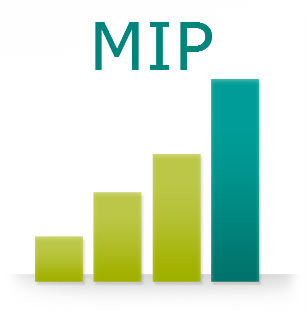
If you are considering purchasing a home using an FHA loan, you best move quickly. For FHA case numbers assigned on or after April 1st, 2012 there will be two increases in MIP. The first increase is due to our friendly politicians in Washington applying a payroll tax to the mortgage industry during a time when we are struggling to recover from a housing bust. Great idea, right? The second increase is from the Department of Housing and Urban Development who administers FHA loans as they attempt to bolster their capital reserves.
A quick refresher on FHA loans. With an FHA loan, you are able to purchase a home with only 3.5% down, however, you pay for that low down payment in the form of mortgage insurance. On an FHA loan, that mortgage insurance is split between an upfront mortgage insurance (Upfront MIP) and a monthly mortgage insurance (Monthly MIP). The upfront is generally added to your total loan balance and financed over the life of the loan, the monthly is paid monthly for a minimum of 5 years and continues until your loan balance reaches 78% of the original purchase price.
For case numbers assigned on or after April 1, 2012, the Upfront MIP will increase by 0.75% and the monthly MIP will increase by 0.1%. Here are the specific changes:
For case numbers assigned on or after April 1, 2012:
- 15-year loan terms with loan-to-value over 90% : 0.60 percent annual MIP (up from 0.50 percent)
- 15-year loan terms with loan-t0-value under 90% : 0.35 percent annual MIP (up from 0.25 percent)
- 30-year loan terms with loan-to-value over 95% : 1.25 percent annual MIP (up from 1.15 percent)
- 30-year loan terms with loan-to-value under 95% : 1.20 percent annual MIP (up from 1.10 percent)
Finally, for case numbers assigned on or after June 1, 2012, there will also be a Jumbo premium added to the monthly MIPs shown above. This is only for loan sizes of $625,000 and up and will not impact us here in Georgia.
Let’s look at a quick example to see the impact. Assume you are purchasing a $200,000 home with 3.5% down. Prior to 4/1/2012 your upfront MIP would be $1930. After 4/1/2012 your upfront MIP would be $3377.50, an increase of $1447.50. Since the MIP is generally rolled into your new loan amount, that will not only be a $1447.50 hit to your equity, but financed for 30 years at 4% interest, it also adds $7 per month to your payment.
In addition, your monthly MI prior to 4/1/2012 would be $184.96. As of 4/1/2012, it goes to $201.04, an increase of $16.08.
For the scenario above, your payment increases by $23 per month, plus you lose $1447.50 in equity from day one. But how does HUD describe this impact?
“FHA estimates that the increase to the upfront premium will cost new borrowers an average of approximately $5 more per month. These marginal increases are affordable for nearly all homebuyers who would qualify for a new mortgage loan.”
I’ll let you decide if you agree with that statement.
Now for the good news. FHA is declining rapidly in market share as they price themselves out of the market. If you can simply come up with the additional 1.5% down payment to get to a total of 5% down and you have a good credit score, then you can save a lot of money going with a conventional (Fannie Mae or Freddie Mac) mortgage with Private Mortgage Insurance.
Bottom line: If you have a credit score below 680 or can only put down 1.5%, then get under contract before 4/1/2012 and make sure that your lender provides you with a case number prior to 4/1/2012. It is imperative that they actually give you the case number before that date – do not trust that they will take care of this for you. If they don’t, it’s a very expensive mistake. If your score is above 680 and you can handle a 5% down payment, then you can simply ignore all of this because an FHA loan is not in your best interest.
